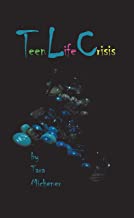Brief Psychotic Disorder
Brief psychotic disorder is triggered by extreme stress, such as a traumatic accident or loss of a loved one. It is followed by a return to the previous level of function. The person may or may not be aware of the strange behavior. This condition most often affects people in their 20s, 30s, and 40s.
Cluster Number:
Wiki Number: W027
Diagnosis: Brief Psychotic Disorder
US Patients:
World Patients:
Sex Ratio: M; W2
Age Onset:
Brain Area:
Symptoms: Brief symptoms-delusions, hallucinations, disorganized speech or behavior; catatonic (rigid muscles, poor speech)
Progression:
Causes: can be theresponse to a significant stressor (death of a spouse or losing a job)
Medications:
Therapies: usually resolves spontaneously; estrogen flow may resume
Youtube Video: Brief Psychotic Disorder
Amazon or Library Book: Teen Life Crisis
Click the book to link or buy from Amazon.

